Thousands of Belizeans live with diabetes. Diabetes has become a major health concern across the world, with 9.3% of the human population living with the disease. While diabetes is not a fatal disease, if left unchecked, it can result in health complications and even death. Educational campaigns are one of the main forums that provide valuable information on how to cope with diabetes to live a normal and healthy life. The most recent educational campaign was held at San Pedro High School (SPHS) from Monday, January 11th to Friday, January 15th. The program saw students, teachers and the community in general, benefiting from counseling and testing from Kathy Johnson, Executive Director of Alternatives Inc. (a community-based non-profit organization dedicated to assisting individuals with special needs) and Judy Mitnick, Certified Nutritionist and Diabetes Educator at Bon Secours Hospital System in the USA.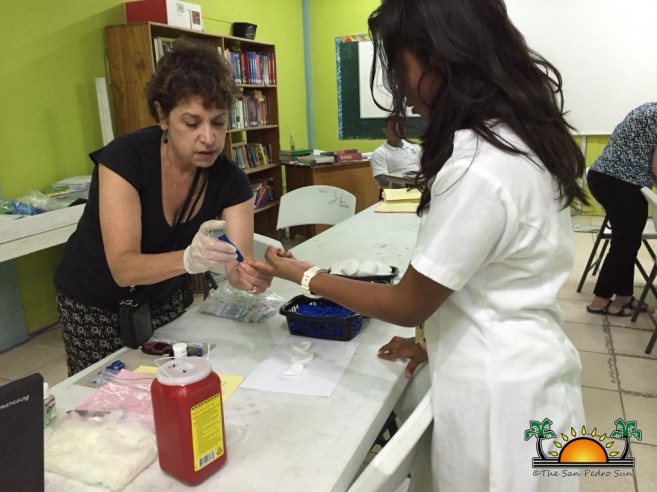
According to Dr. Judy Pantelides, who spearheaded the campaign, the diabetes educational project is part of the Belize Health Empowerment grant. “The Belize Health Empowerment grant was awarded this past fall to the Kiwanis Club of Downtown Hampton in Hampton, Virginia USA by the Kiwanis International Foundation with the assistance of the Kiwanis Capital District Board. Kiwanis is an international organization dedicated to improving the world, one child at a time. Its major worldwide project has been ‘Project Eliminate’, where it is working in conjunction with UNICEF (United Nations Children’s Fund) to eradicate neo-natal tetanus in countries around the world. The Belize grant was to help address both bullying and diabetes here in San Pedro. Kathy Johnson, and Judy Mitnick were brought here through that grant to provide training, workshops and screening students for prediabetes,” said Dr. Pantelides.
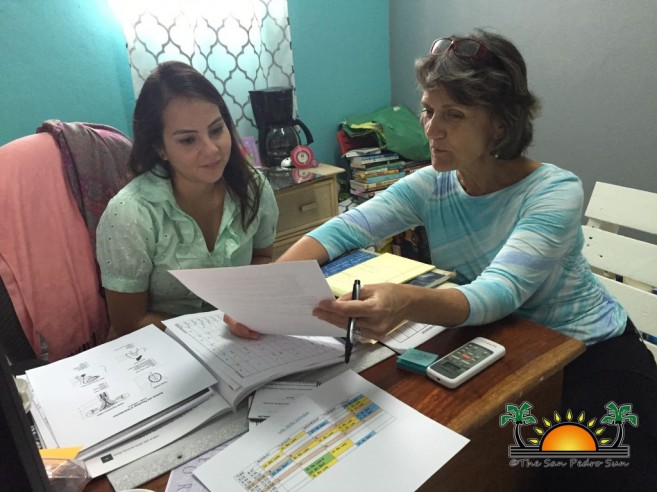
Dr. Pantelides explained that while Johnson worked on the counseling aspect of the program, Mitnick specifically provided information and testing on diabetes. “Johnson worked at SPHS together with the guidance counselor (Alexis Guerrero) to provide student training on relationship, self-esteem building, and anti-bullying. She also provided after school workshops for school staff at San Pedro Roman Catholic Primary School and SPHS on how to use these strategies in their own classrooms. Mitnick taught classes at SPHS on nutrition and how to prevent and control diabetes. She also screened all students (with parental permission) and school staff who wished to be screened for prediabetes,” said Dr. Pantelides.
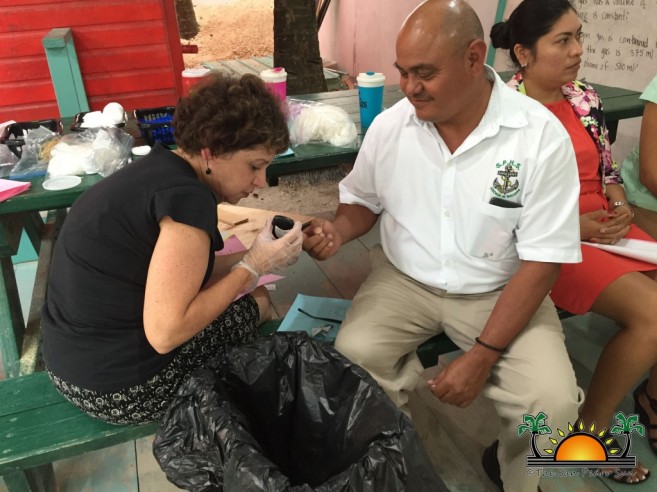
In speaking to some of the students who underwent the prediabetes testing, they indicated that it was an eye opening experience. “At first I was afraid because I have never been tested before. But when I found my results I was surprised because my blood sugar was up. I now know that I need a balanced diet and try to do some physical exercise and get enough sleep. I will definitely stop eating a lot of sweets,” said second former at SPHS, Camila Vasquez. As for Lucita Guerra, “It was my first time doing it and my results were good. I have learned that I need to do some exercise and watch what I eat, not too much unhealthy foods and sweets.” Both girls were in agreement that this was a great learning experience and has made them more aware about diabetes.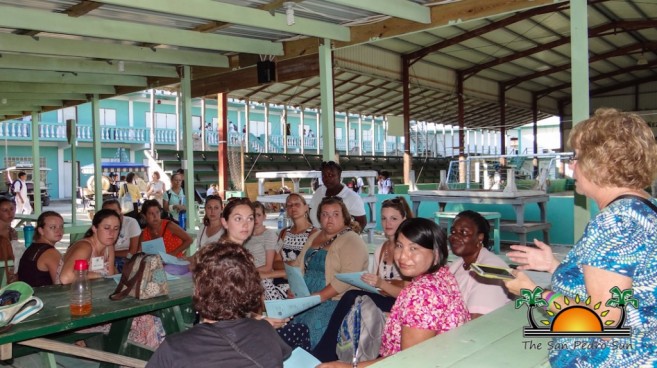
Mitnick’s main focus was to make the students and teachers understand that while diabetes can be a hereditary disease, the leading cause for contracting diabetes today is poor health practices. “SPHS student and staff members that got tested were quite normal. We did have a student and staff member whose blood sugar was high; the student visited the polyclinic and was indeed diagnosed with diabetes. For the most part, blood sugar levels were normal, but it is still important to educate everyone about diabetes in order to prevent the disease. If you do not test positive now, it is still important to learn about diabetes and take preventative methods to ensure that in the future you remain diabetes free,” said Mitnick.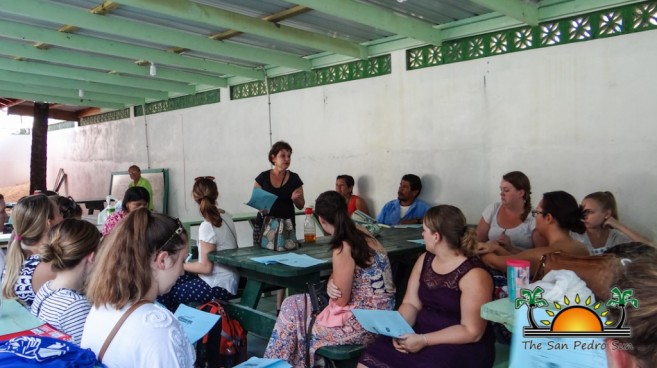
Mitnick also explained that there are several changes SPHS can do to promote better health practices within their staff and students. “The biggest thing here, and even in the USA, is that people don’t think about what they drink. Soft drinks contain so much sugar and carbohydrates that if you are drinking three a day that is not healthy. I hope that with the information I have provided here at SPHS, everyone would drink one less soda and more water, then that would make a huge difference.”
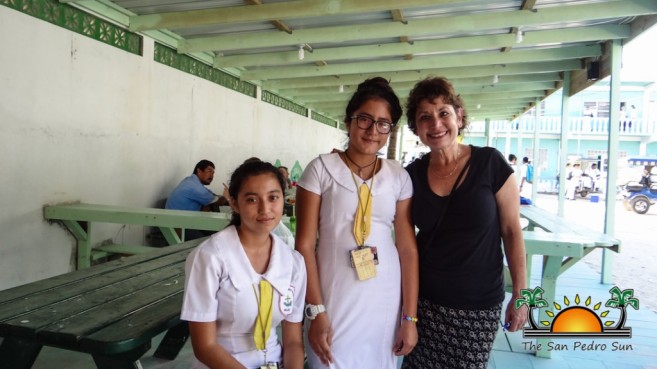
On Wednesday, January 13th, Mitnick hosted a workshop at SPHS for the ‘Teachers Across Cultures’ volunteer, students and teachers of the different island school and community members on good nutrition and diabetes. In addition, over $1000US worth of diabetes testing supplies were provided as part of the grant and was used for testing as well as to provide assistance to program participants who have diabetes.
Everyone is encouraged to have regular blood checkups, especially if there is a history of diabetes in your family. Early diagnosis can greatly improve a diabetic’s way of life.


